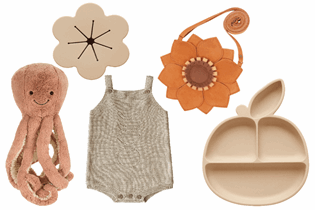Sibling rivalry - shouldn't they just get along?

We all dream of our children being the best of friends, but the reality can look very different. Clinical psychologist, Chantal Hofstee unpacks the why behind sibling rivalry and explains that the answer is closer than you think.
Think back to when you and your partner had been together for two, maybe three years. You were likely having fun, enjoying each others company, spending lots of time together, and wanting to be close to each other as much as possible. You felt safe and comfortable together. Sure, things weren’t perfect, but they were good and you knew this person was the one for you.
Then imagine one day your partner sits you down and says, “I have some exciting news, in a couple of months another woman will be joining us! You are going to be a second wife! Isn’t that wonderful!”. At first you feel surprised and a little confused. A second wife? What does that mean? So far it has just been you two, why would that need to change? What if you don’t want it to change? Your partner, noticing your ambivalent reaction, tries to reassure you, “It will be great, you can hang out together, do things together, you can help look after our new family member and you will still be my special person, nothing will ever change that”. A feeling of jealousy and rivalry would only be natural. You also feel that clearly you don’t have a say in the matter, the deal has already been sealed and you are expected to accept it and even be happy about it… not always easy.
The unusual situation described above is, luckily for most of us, not very common. However, for your first child (if you have more than one) this is something along the lines of what they may have experienced. Maybe you're one of the lucky ones and your child was and has remained genuinely excited about having a sibling. However, in most cases it is more of a mix between enjoying it at times and arguments over the tiniest little things. It’s this dynamic that can drive some parents’ stress levels through the roof. “Why can’t they just get along?”, “Why can’t he just ignore his brother?”, “Why do they always want to play with the very thing the other person is playing with?” Sometimes it can feel like you are now this police officer or referee that is fighting fires all the time and it is not the wonderful and supportive sibling relationship you had hoped your kids would develop.
There can be many different reasons why siblings don’t get along and sometimes it is a mix of different factors that play a role. Age, level of maturity, overall stress in the household, imbalances, your child’s general mood, underlying anxieties… the list goes on. There is, at least in my experience, one factor that often plays a role and it can be very helpful for parents to understand this factor and look at sibling rivalry through that lens.

CONNECTION
As soon as a child is born they realise at an instinctive level that they need to survive and their lifeline is their parent/caregiver. If a parent disowns and abandons a child it strongly increases their risk of death, in the past especially so. Therefore, children instinctively seek connection and are stressed by disconnection. When you think about the times of the day and activities that trigger stress in your home it is very likely these will be surrounding moments of disconnect. The morning routine when they are getting ready to disconnect from you and connect with the teacher and their peers, the afternoon pick up when they are disconnecting from their teacher and peers and reconnecting with you and then the bedtime routine when they are doing anything they can to postpone the inevitable disconnect of going to bed. When our kids are asleep in their room we don’t love them any less or feel any less connected to them (maybe we love them even more when they are asleep!), however a young child’s brain perceives this physical disconnect differently. We, with our mature brains, realise that we can be ‘together apart’; that being in different locations doesn’t change our relationship. A young child doesn’t understand this concept yet and needs to self-soothe to regulate the instinctive stress that comes from being apart from the parent or caregiver.
Disconnection can also happen when we are in the same location. When our attention is divided or focused on something else our kids will experience this as disconnection and it can lead to ‘connection checking behaviours’ also known as ‘attention seeking behaviours’. Have you ever noticed that your child can be playing happily but then as soon as you pick up your phone to make a call, or start a conversation with your partner, they instantly need you and want to interrupt? This is because your attention is no longer available and instinctively they want to make sure there is still space and attention for them.
Connection is like a bucket, each child has a need for that bucket to be filled. If it is full, or full enough, they relax and can enjoy themselves. They might prefer to have your attention but they don’t need it and are less likely to demand it in negative ways. Some children wake up with a connection bucket that needs topping up in the morning or else the morning routine will be very difficult (my middle child), some kids wake up with a full bucket but it gets drained throughout the day and hits critically low levels after school (my oldest), some kids are only ever really content when they are physically touching you or when they have your full attention (my youngest).
It would be fair to say that in most homes undivided attention from the parent or caregiver is a scarcity. Our children need to compete for attention with our jobs, our chores that need doing, our phones that so often get in the way of connection, our partners that we also want to talk to, and on top of that those pesky siblings that want to come in at each opportunity and steal the attention that the child so strongly desires. This, in many cases, is the reason our children struggle to accept each other, tolerate each other and support each other. When their connection bucket is full often sibling issues are drastically reduced, when the connection buckets are only half full or even empty, even having your sibling in your space can be intolerable.
Of course there can be other factors involved and sometimes it’s hard to tell. Especially because my six-year-old can’t say, “Mum, I’m finding it really hard that my baby brother is being held all the time and gets to sit on your lap just because he is younger when I also want to do that. Plus, I’ve had a hard day at school today and I just want to spend some time with you so I can process it all and feel better, and that’s really hard to do with him here too.” Instead, it shows up as fighting over a toy, fighting over a seat, being unkind, impatient and having a very low tolerance towards him. It would be easy to mistake it for ‘bad behaviour’ when it is really a need for connection combined with an ‘attention stealer’ without the awareness or words to express this.
Our kids now, more than any other time in history, have had to cope with more disconnect and earlier on in their life than any generation before them. This doesn’t mean that we should not be working parents or should all homeschool our kids, but it’s a helpful lens through which to look at the challenges in our homes including the challenge of sibling rivalry. When we notice this we can think of small ways in which we can keep their connection buckets filled. For example, in the morning my middle child always jumps in bed with me and we have five minutes of big hugs. After school I always make sure to check in with my oldest child to allow him to ‘download’ anything he needs to from his day. When they want to play and I don’t have time, instead of saying ‘No’ I say ‘I would love to but need to cook dinner, do you want to join me and give me a hand?’ They might say no to that invitation but they know and feel that just because I didn’t have time to play it doesn’t mean there was no time and space for them. Often hearing that they are invited into what I am doing is enough to give them the top up they were looking for.

CHANTAL'S TOP TIPS FOR CONNECTION
Kids, just like adults, have their own ‘love language’ or ‘connection language’. It can be a great exercise to write down for each of your children the following:
+ When are they most in need of connection top ups? (Morning, after school, evening, weekdays or weekends)
+ What drains their connection bucket most? (Time away from you, lack of physical closeness, schedule being too busy, too much screen time, not enough time to talk, no alone time with you)
+ What makes them feel strongly connected to you? What top ups do they love most?
FILLING UP THE CONNECTION BUCKET
+ Touch (cuddles, kisses, high fives, tickling, sitting together)
+ Play (playfulness, games, jokes, joining in their play)
+ Activities (doing things together even if they're everyday things like cooking, a walk, hanging the washing, having a chat)
+ Words (expressing with words how much you like them, love them and appreciate them)
+ Support (offering your support in various ways)
Chantal Hofstee is the mindful mum of Sem, Isha and Leon, a clinical psychologist, an executive coach and the author of Renew Your Mind and Reach Your Goals Without Stressing Out. Find out more at renewyourmind.co.nz.

AS FEATURED IN ISSUE 59 OF OHbaby! MAGAZINE. CHECK OUT OTHER ARTICLES IN THIS ISSUE BELOW

















